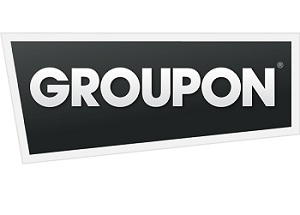Since its big IPO last year, Groupon has been picking up the pace of international expansion. Today, for example, we were tipped an email written by Groupon Co-founder and CEO Andrew Mason to Groupon employees, which announced some big changes to international management, specifically in EMEA (Europe, Middle East, and Africa) and Latin America.
Regardless of the fact that Groupon scooped up at least six startups since November (including Mertado, Adku, Campfire Labs, Hyperpublic, Kima Labs, and Uptake), taking a look at Groupon’s first earnings report as a public company, one will find that the company lost $350 million in 2011 — not because of marketing or M&A spend — but because of its “very aggressive international expansion” efforts.
In his email to employees, dated February 29th, the Groupon CEO revealed that the company announced a new organizational structure for EMEA this past December, “promoting seven of [its] best country Managing Directors to International VPs, overseeing different regions of EMEA, and reporting directly into Marc Samwer, our head of International.”
This international management is becoming increasingly important to Groupon, as 7,000 of its 10,000 employees are now stationed outside of the U.S., and the chain of command leads directly up the ladder to Marc Samwer. At the annual DLD confab in Munich, David Kirkpatrick asked the Groupon CEO about the supposed “problem” of giving two of the Samwer brothers so much control over the way the expands internationally, to which the CEO replied:
The Samwer brothers have a reputation for cloning, and before I started a company myself, maybe I would have looked down on it, too. You need to realize that execution is the hard part, the idea is easy.
The Samwers are the best operators I’ve ever seen in my life. We’re super lucky to have them. We couldn’t have done it without their help.
Nonetheless, Groupon struggled with its entrance into China and as a result, there has been a lot of attention from investors and analysts paid to the discrepancy between its business in the U.S. and abroad. But, speaking at the Goldman Sachs Conference last month, Mason attributed this to the fact that the company is “farther along technologically” in the U.S. than it is abroad.
However, the CEO was optimistic that this is beginning to change, partly because of Groupon’s plans to roll out deal personalization overseas, among other things. Furthermore, on Friday, the Office of Fair Trading (the U.K.’s version of the Federal Trade Commission) cracked down on Groupon Britain for what it considered “widespread breaches of consumer protection regulations,” including the way in which Groupon’s British arm is dealing with reference pricing, advertising, refunds, promoting unfair terms, and the diligence of its interactions with merchants. (More from GigaOm here.)
In response, Groupon announced that it would be making the changes that the Office of Fair Trading suggested, including to pricing and and advertising, and Groupon Communications Director Julie Mossler said that the company had actually been in the process of making those changes before the government’s ruling came down.
While there are clearly issues with meeting regulations in the U.K. (and perhaps management issues), Groupon believes in the potential of its overseas businesses and the strength of leadership. Such that Mason said in his email to Groupon employees (dated the 28th of February) that it is applying the same structure the company has used in Europe, the Middle East, and Africa — the one led by the Samwer brothers — to Latin America.
This includes a number of executive-level changes among its international ranks, including hiring Patrick Schmidt as VP of Latin America. Schmidt is formerly co-CEO (and co-founder) of Groupon Australia/New Zealand.
According to Mason:
Patrick has proven his leadership by helping to guide Groupon from an Australian latecomer to the market leader, overcoming domain squatters along the way. Before joining Groupon, Patrick spent 10 years in advertising and consulting in Europe, Asia and the U.S. We’re excited to have his help growing Latin America.
In addition to hiring Schmidt as VP of Latin America, Mason announced that Miguel Queimado will become CEO of Groupon Brazil, where he will report to Schmidt. Queimado has been living in Portugal, where he has worked for the last three and a half years for McKinsey, leading projects in Portugal and Angola.
Of course, this means that the founders of both Groupon Latin America, and Groupon Brazil, specifically, are out and will be taking new positions within the company. Oskar Hjertonsson, the founder of Groupon Latin America and Florian Otto, the Founder and CEO of Groupon Brazil, will be helping to lead the new transition to new leadership over the next several months, Mason said. Then Hjertonsson will be serving Groupon “in a to-be-determined role from his new home in San Francisco, and Otto will join the global corporate development team.”
In light of The Next Web’s report that the third largest Groupon competitor in Brazil, Peixe Urbano, acquired its second largest, Groupalia, Groupon will be getting some more heated competition going forward from its merged competitors. Both trailed Groupon in traction in LatAm, according to comScore, but not by much, and the merger significantly strengthens the company’s position in the region.
Groupon has already spent a great deal trying to push its model in international markets, and Mason’s talk at the Goldman Sachs Conference implied that just based on the size of its brand in the U.S., it shouldn’t be too difficult to snatch up market share abroad. But with its stumbling in China, issues in the U.K., and growing competition in Latin America, it falls on its new leaders to make sure the rising international expenditures aren’t for naught.
